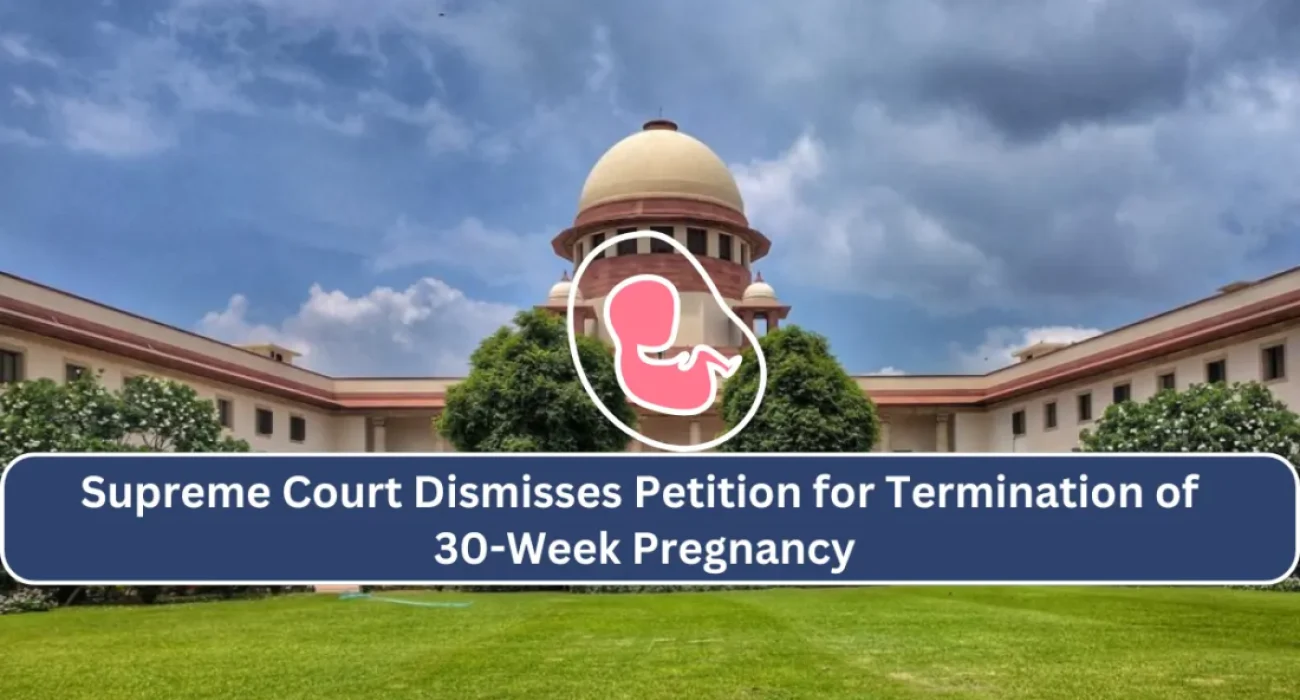

On Wednesday, May 15, the Supreme Court dismissed a petition (H vs Union Of India And Anr.| Diary No. 22763-2024) filed by a 20-year-old unmarried woman seeking termination of her 30-week pregnancy. The bench, comprising Justices BR Gavai, Sandeep Mehta, and SVN Bhatti, was hearing a Special Leave Petition against the Delhi High Court’s judgment delivered on May 3, which had previously dismissed the woman’s plea when the pregnancy had crossed 29 weeks
Table of Contents
ToggleThe petitioner, a student getting ready for the NEET exam, felt heavy and uncomfortable in her abdomen on April 16 and then realized she was pregnant. The pregnancy was 27 weeks along by that point. The pregnancy had advanced past the legal limit set forth by the Medical Termination of Pregnancy (MTP) Act, so she requested to end it.
The petitioner was in extreme physical and mental distress, according to the petitioner’s attorney. The attorney argued that the MTP Act primarily takes the mother’s rights into consideration and stressed that the pregnancy posed a serious risk to her mental health. Additionally, they emphasized that the petitioner’s physical and mental health should come first because she was in a traumatized state and was unable to interact with society. They pointed out that the effects of the pregnancy on her physical and mental health were not taken into account by the medical board or the High Court.
Stipulating that “we cannot pass an order contrary to the statute,” Justice Gavai reaffirmed the legislative limitations. The right of the child to survive was underscored by Justice Mehta, who pointed out that the pregnancy was not over seven months.
The court upheld the 24 week legal maximum for pregnancy termination, which can only be exceeded in situations where there is a serious risk to the mother’s life or significant fetal abnormalities. Judge Mehta asked, “What about the life of the child in the womb?,” highlighting the child’s fundamental right to life while still in the womb. Additionally, the unborn child has an inalienable right to life.” Concerns regarding the child’s rights and the pregnancy’s advanced stage were voiced by the bench.
The bench reiterated the unborn child’s right to life while pointing out the limitations of the current legal framework and acknowledging the petitioner’s distress.
In accordance with the earlier ruling of the Delhi High Court, the Supreme Court denied the petition. The fetus displayed no congenital abnormalities, according to the High Court, and the case did not fall under any of the 24-week limit’s exceptions. The petitioner was told to contact the Union Government if she wanted to place the child for adoption, and she was allowed to use the medical facilities at AIIMS for childbirth. It was mandated of the government to ensure a seamless adoption procedure.
The court’s adherence to statutory provisions in weighing the conflicting rights of the mother and the unborn child is reflected in the dismissal.
IAW resources
Browse our help directory